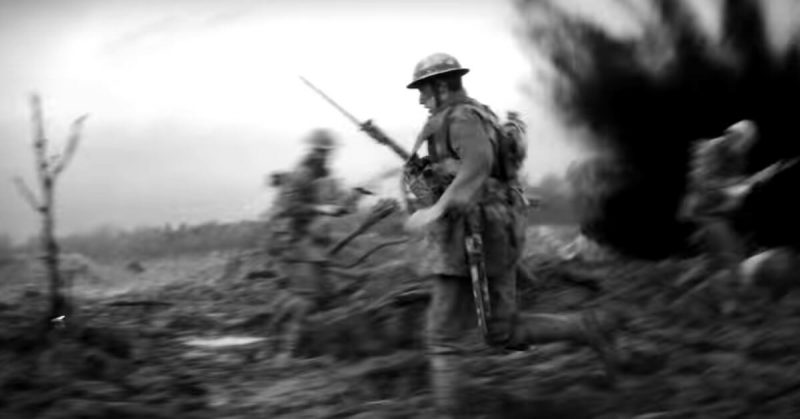“Tommy” is a short independent film created by a close-knit group of filmmakers. Written and directed by James Sieradzki, the film attempts to create a first-hand insight into the mind of a soldier suffering from PTSD in World War One.
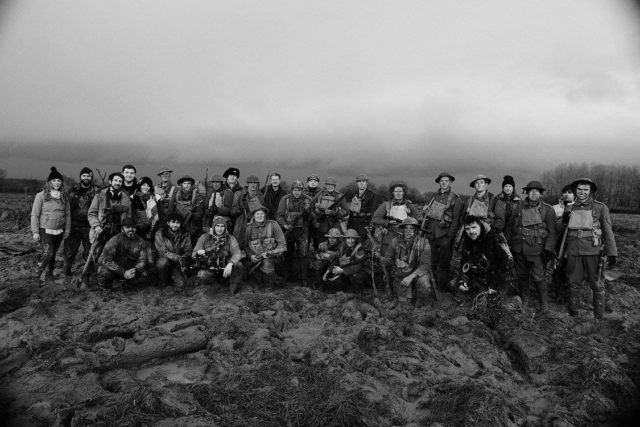
The aim was to explore what one might be experiencing when becoming a victim of ‘Shell Shock’. An absurd duality of wartime life versus civilian life was a key factor in the writing process, using a crossover between both scenarios declares two possibilities, that our hero is having a flashback to the war whilst picking apples, or he is simply missing home whilst in the battlefield, reminiscing on his past and what he’d be doing right now if it wasn’t for the war, this hopefully brings us closer to the confusion undergone with PTSD.
We hope to achieve a unique and personal perspective on the tragic consequences of PTSD during The Great War. The aim is to remind people of the real human sacrifice behind the history books and how we should endeavor to avoid events that lead to such sacrifices in the future. The production process was in some ways as unique as we hope the story to be.
From the director and lead actor digging trenches in the weeks leading up to and after the shoot to the entire cast and crew engulfed in pitch black darkness and torrential rain, the shoot was full of successes and riddled with unexpected difficulties. Never the less, everyone pulled through together with a smile on their face, this wasn’t your usual production, it was fuelled by passion and the strong will of everyone involved.
“One evening after work in 2014, I was gazing out of my bedroom window at the mountainous pillar of light emitting from central London and into the night sky. The light was to commemorate the Centenary of World War One and it certainly did a good job of reminding me about the war and those who were unfortunate enough to have to fight in it.
I began to think about how especially unforgiving The Great War was, and wondered how I would cope if I lived through those times. It seems that once traumatic events such as this are consigned to history it becomes easy to disconnect with the human beings behind the stories, and that for me is a dangerous and tragic prospect. Becoming desensitised to human suffering isn’t a deliberate action, but when that suffering is far in the past, it can seem much further away, almost as though it never happened at all.
I began to contemplate what I’d be thinking if I was in those trenches, looking at my watch and asking myself what I’d be doing right now if it wasn’t for the war, perhaps I’d be at home with my family, or out at work, picking apples.
There are many horrific facts about that war that make you wonder how people made it through without losing their minds. Unsurprisingly, there were many who suffered with mental health issues directly linked to battle and unfortunately, there wasn’t much sympathy or understanding for them.
I had been engrossed in this trail of thought for a prolonged amount of time, still gazing out of my window. Once I started to go these places in my mind, I decided that it had to be the subject for my next film and that’s where “Tommy” began.
Shell Shock or PTSD and the lack of it’s understanding back then was an interest of mine and I wanted to see how close I could get to emulating it in a film. I wanted to use the lack of clarity that PTSD sufferers reportedly feel to help tell the story of a man who was either in the battlefield and reminiscing of home, or at home and reminiscing of the battlefield.
Most of all I wanted to try and provide another good and honest prompt to help us remember that there were real people who went through all of this, they were as real as us and once had a life that felt as real and as current as ours.
I very much doubt that my film will have the same effect as a huge beam of light stretching far out of the city skyline, but if I can feel I’ve made a humble and meaningful attempt, then that’s all that matters.”
– James Sieradzki
Behind The Scenes
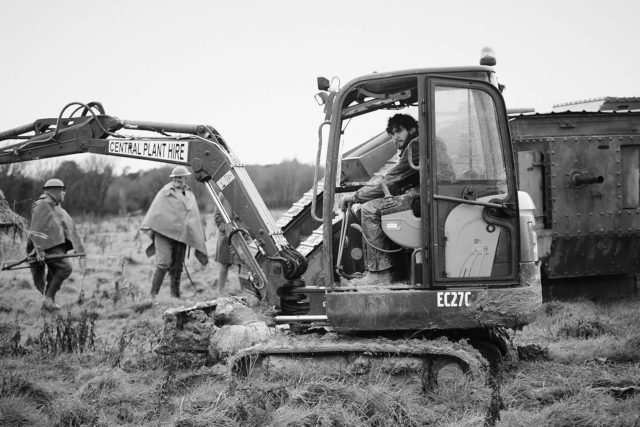
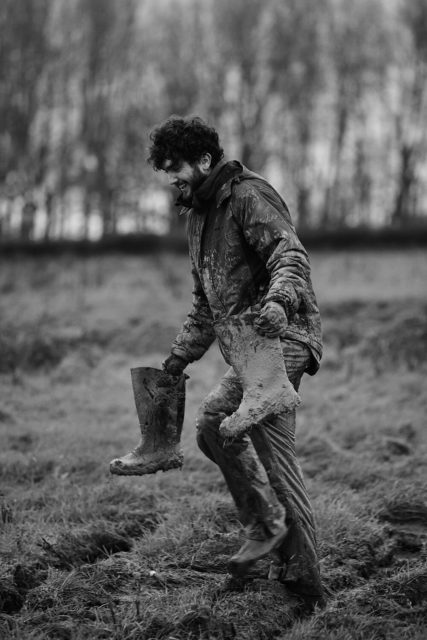
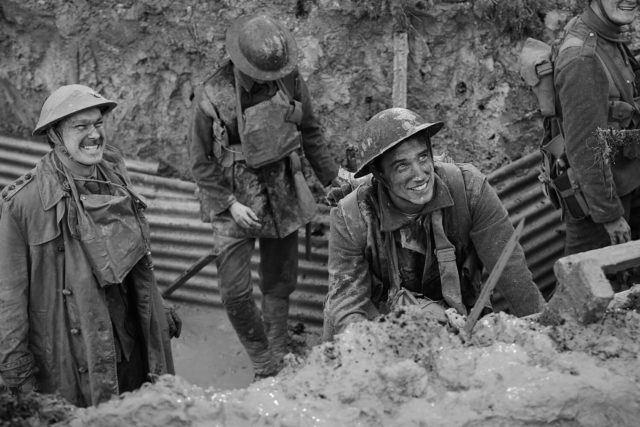
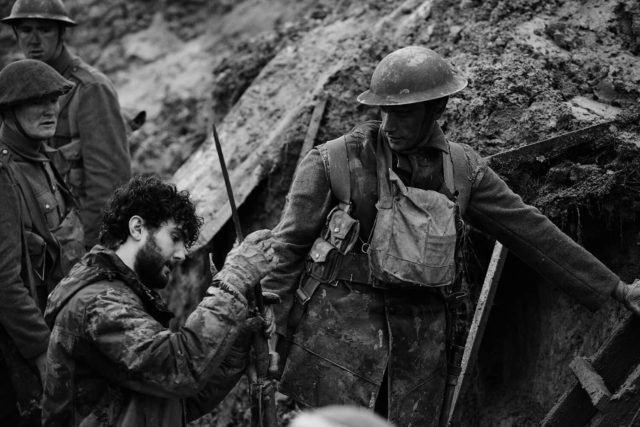
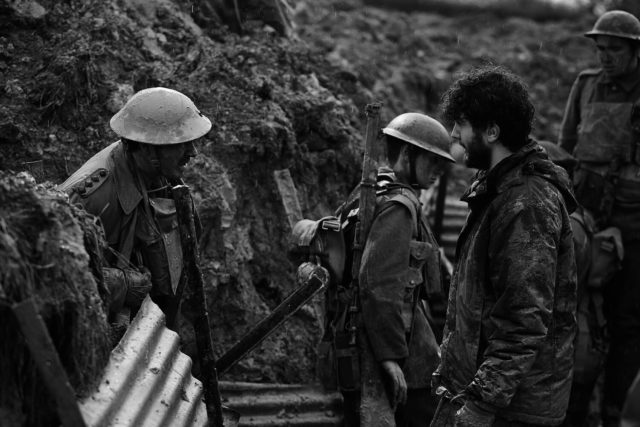
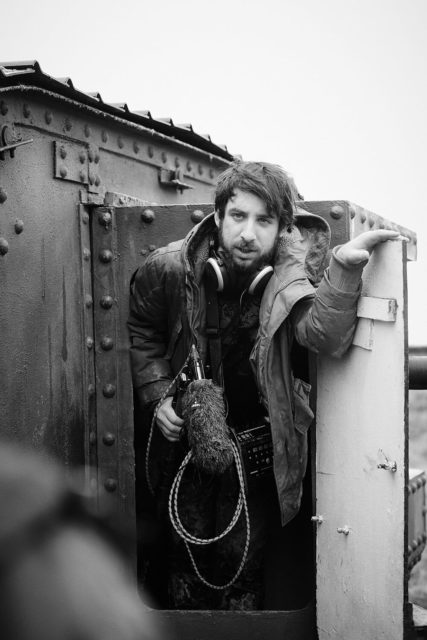
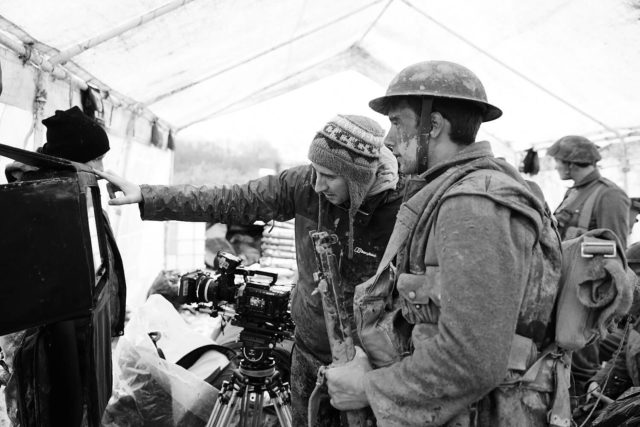
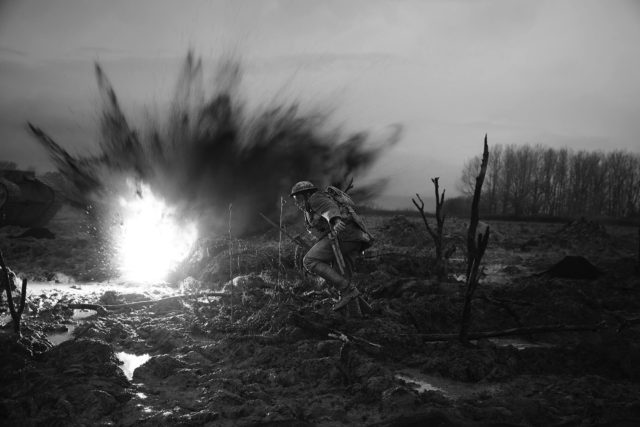
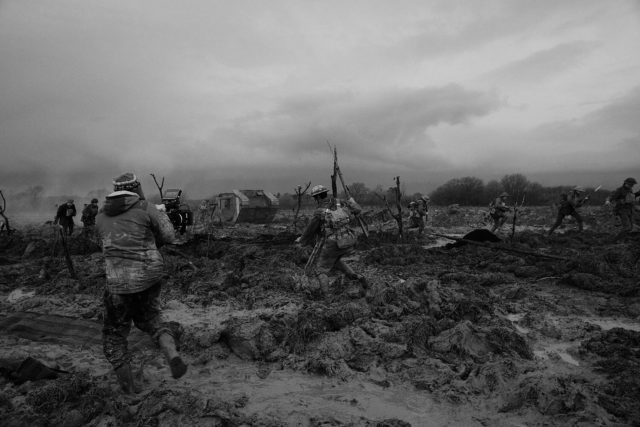
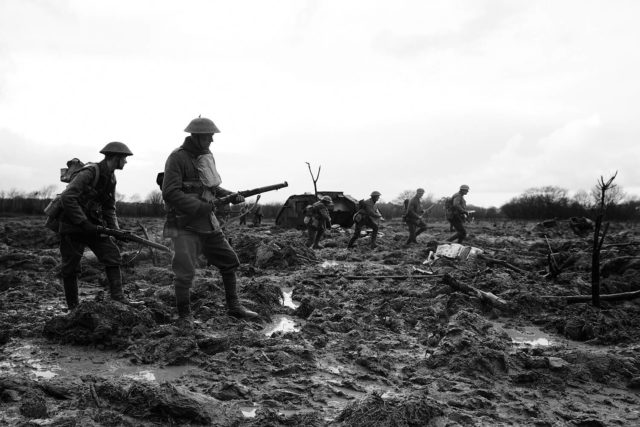
Copyright 2016 James Sieradzki. Directed by James Sieradzki, produced by Joel Maguet.
